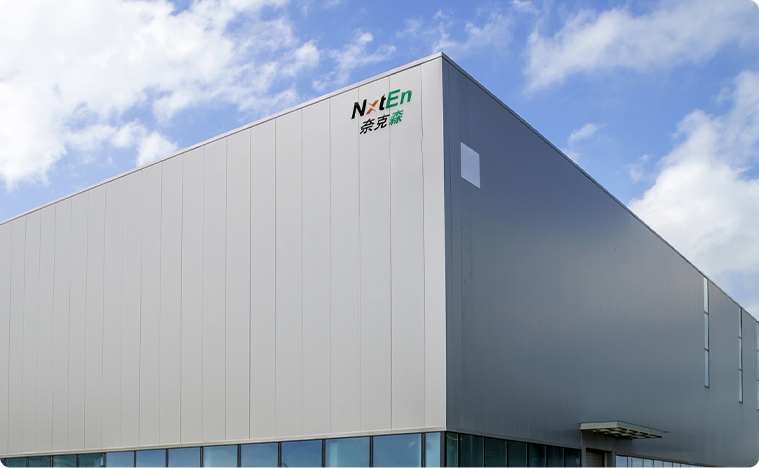Nxten lithium-ion Batteries deliver outstanding performance through high energy density, wide temperature range operation, high power output, and multi-level safety protection, meeting diverse application needs from residential energy storage to large-scale industrial scenarios while ensuring long cycle life and exceptional reliability.

 About Nxten
About Nxten
0㎡

0+

0+

0+
 What’S News
What’S NewsA battery module is a core energy unit composed of multiple rigorously selected and balanced battery cells. It is a crucial carrier for achieving stable output, efficient management, and safety protection in energy storage systems. Compared to a single battery cell, a battery module boasts higher structural integrity, superior thermal management, and more intelligent monitoring capabilities, thus playing a vital role in residential energy storage, commercial and industrial energy storage, grid regulation, and large-scale industrial applications. Battery modules based on lithium-ion technology offer significant performance advantages. Lithium-ion batteries possess excellent performance characteristics such as high energy density, wide operating temperature range, high power output, and multi-level safety protection, meeting the diverse application needs from residential energy storage to large-scale industrial scenarios while ensuring long cycle life and superior reliability. Through modular design, batteries can achieve higher energy integration within a limited space while maintaining good output capacity and efficiency, ensuring the stability of the energy storage system during charging and discharging.
During operation, the battery module not only fulfills its fundamental role in energy storage but also relies on a supporting Battery Management System (BMS) for comprehensive monitoring and precise control. Internal parameters such as temperature, voltage, current, SOC, and SOH are collected in real time to determine the operating status of each individual cell, ensuring the entire module operates within safe limits and promptly correcting inconsistencies between cells, thus extending the overall battery life. Furthermore, the modules typically feature a structured heat dissipation design, effectively controlling temperature distribution regardless of whether air or liquid cooling is used, preventing localized overheating and improving system reliability.
Regarding maintenance, the higher degree of integration in battery modules makes maintenance more efficient. Engineers no longer need to inspect each battery cell individually; instead, they can use a system monitoring platform to obtain module-level data for diagnosis, reducing maintenance costs and improving fault location speed. Proper maintenance includes checking connecting components, ensuring the normal operation of the temperature control system, and maintaining good ventilation to prevent performance degradation due to abnormal temperatures. The intelligent platform also provides lifespan prediction, health assessment, and early warning alerts, ensuring the energy storage system maintains optimal operating conditions throughout its entire lifecycle.
For storage, battery modules need to be stored under suitable environmental conditions to ensure long-term stability. It is generally recommended to maintain a moderate charge level, avoiding overcharging or depletion, and store them in a dry, cool area away from direct sunlight. The battery module's casing boasts high mechanical strength and a high level of protection, but it still needs to be protected from strong vibrations and impacts to prevent damage to the internal structure. Proper storage conditions not only slow down the natural aging of electrochemical materials but also provide a more stable performance foundation for subsequent use.
Ningbo Nxten Energy Technology Co., Ltd. owns its own factory, handling both production and sales independently, resulting in shorter delivery times. Integrating production and sales—from raw materials to finished products—we rigorously control every step to ensure quality and efficiency.